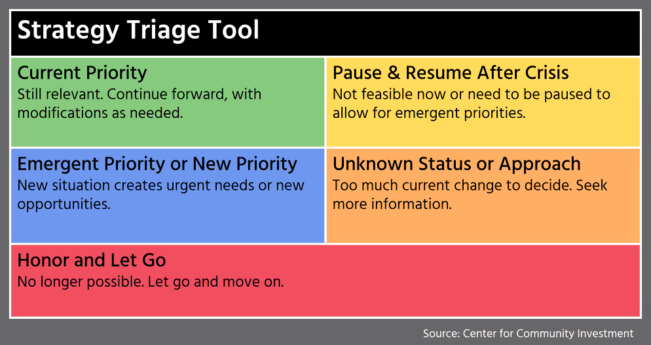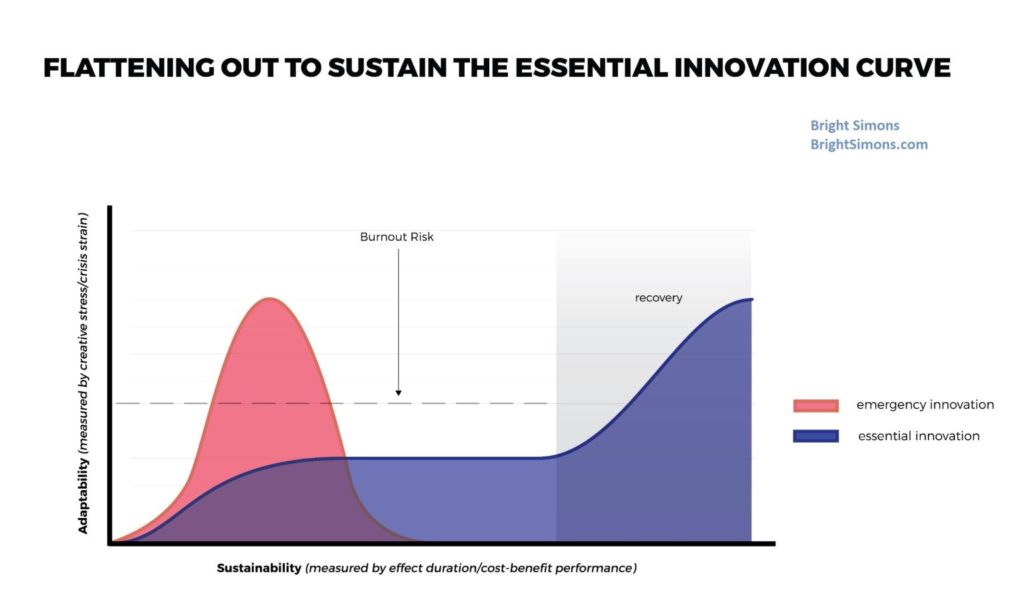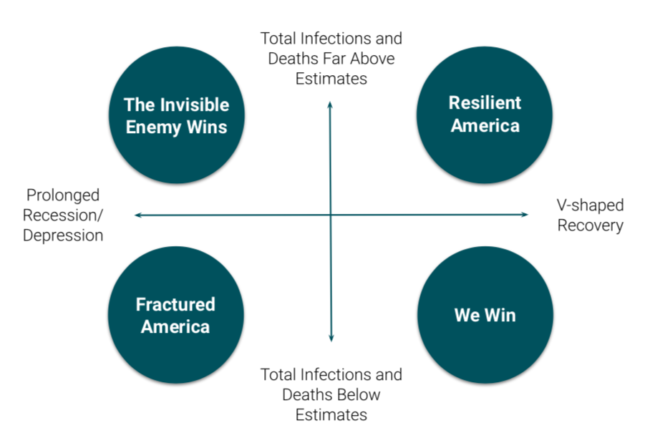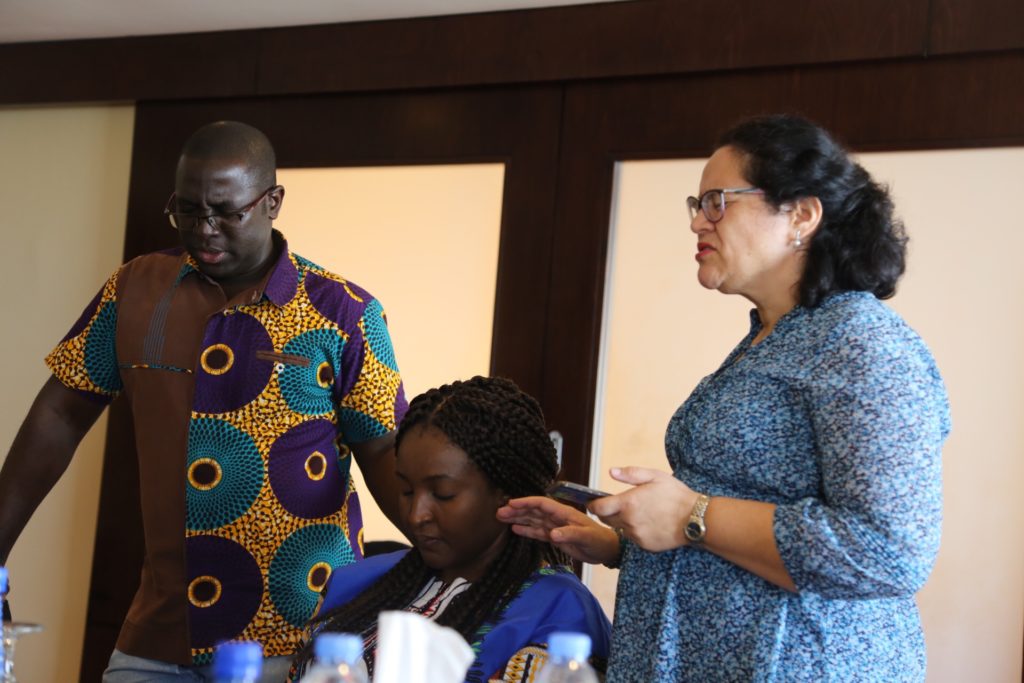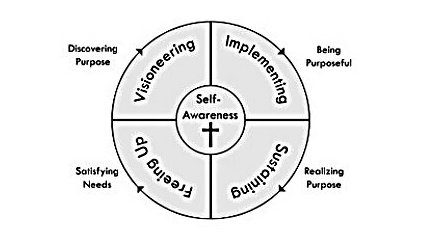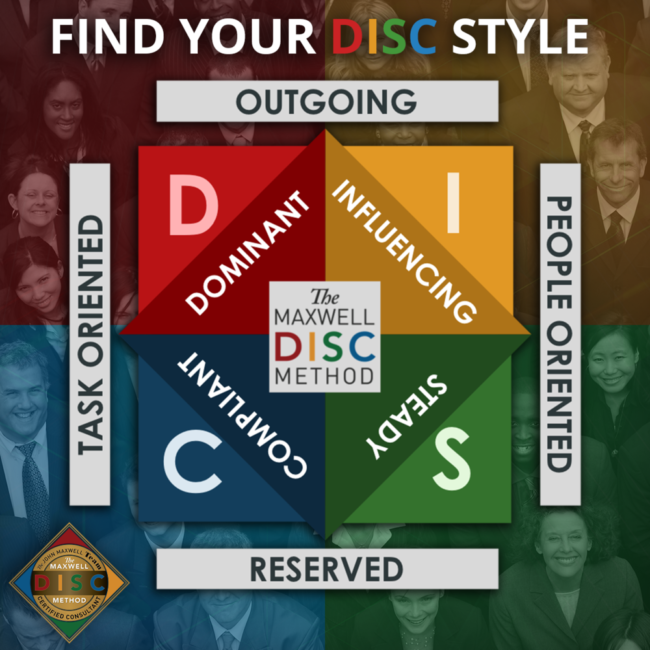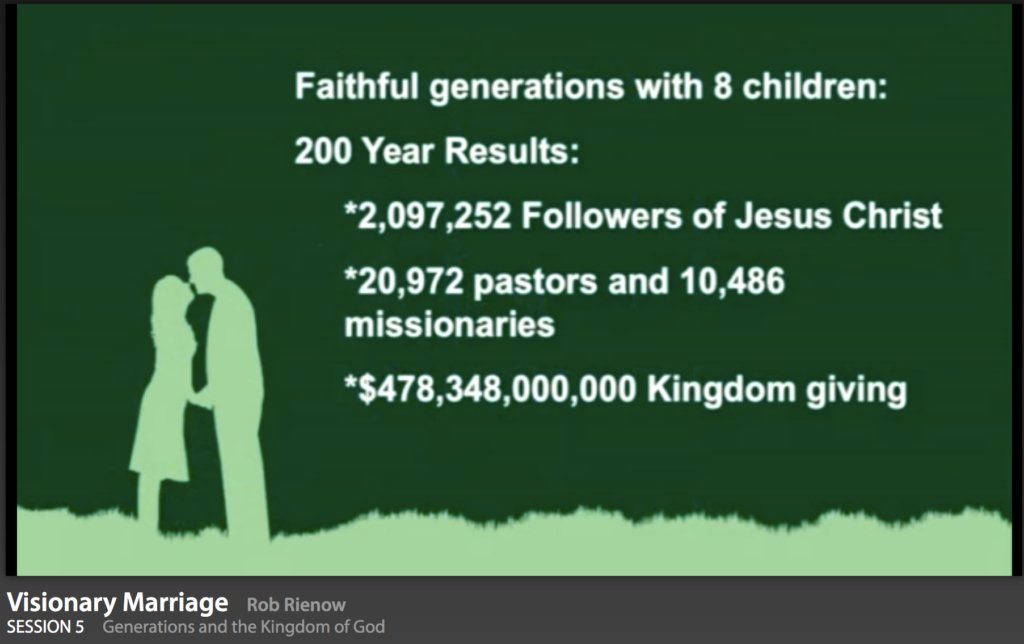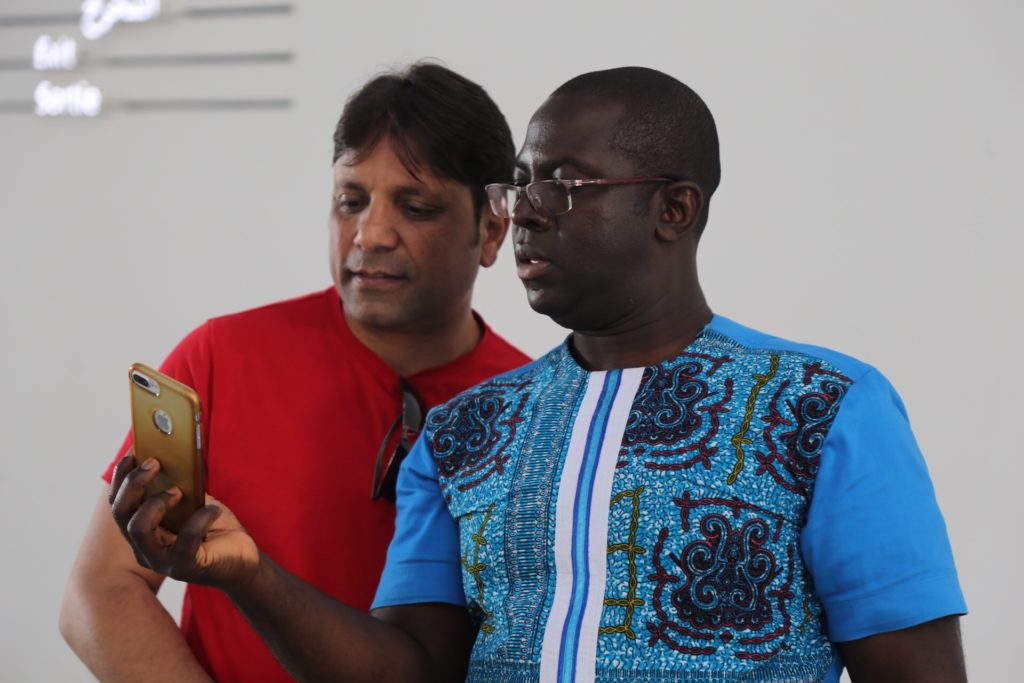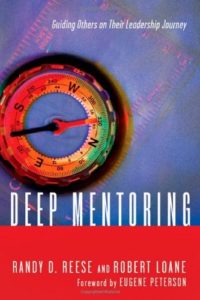COVIDicTimes: Building to last in a pandemic
Everyone knows this is a hard time to live and even more so a jolly harder time to lead. A couple of thoughts and tools have been most helpful in my own leadership struggle to survive the pandemic and tussle to thrive beyond it.

Surviving and even thriving in the very place of crisis (Photo credit: accdocket.com)
This is worth repeating although people in my circles might be tired of hearing me sound like a broken record: a pandemic is a terrible thing to waste. It tends to be once-in-a-lifetime, nay, once every 100 or so years, for crying out loud! That notion of not squandering the opportunity in crises was most eloquently quipped in recent years by Stanford economist Paul Romer at a venture-capitalist meeting in November 2004 in California when he said, “A crisis is a terrible thing to waste.” According to the The New York Times Magazine, “he was referring to the increasing competition that America faces from rapidly rising education levels in other countries.” How much more COVID-19!
As a leadership practitioner in the global sphere, I’ve found myself in various groups discussing both gut reactions and measured responses to the pandemic. I have been particularly intrigued by the notion that COVID-19 is not just a passing blizzard but a long winter, even possibly a mini ice-age. I first heard it from my mentor of nearly 20 years who is currently the Finance Minister of the Republic of Ghana, Ken Ofori-Atta. In his Financial Times article that prayerfully ponders a restoration of GDPs to structural changes that need to happen from digitalization to debt issues, he prophesies: “This is not a passing blizzard, as a friend said; more like a long winter, even a mini ice age.”
Similar words were used by Andy Crouch et al. In summarizing their Leading Beyond the Blizzard: Why Every Organization is Now a Startup article, the above words from Ofori-Atta were echoed: “The novel coronavirus is not just something for leaders to “get through” for a few days or weeks. Instead, we need to treat COVID-19 as an economic and cultural blizzard, winter, and beginning of a “little ice age” — a once-in-a-lifetime change that is likely to affect our lives and organizations for years.”
So how do we live and lead (tactics) in the immediate to survive the vagaries of the current season yet be and do in a way that enables us to thrive beyond the pandemic (strategy). I’ve found the following thoughts and tools most helpful.
1. TRIAGE TO LIVE THROUGH THE PANDEMIC
As a Ghanaian, the month of May holds both the joys of May Day (workers’ holiday; equivalent of Lab(o)ur Day) and the pains of the May 9 stadium disaster that took the lives of 126 people in 2001. As all hands were called on deck that fateful day, ordinary folks drove to my medical school to implore medical students to come over and do whatever we could to help salvage endangered lives from the stampede that had ensued at the capital’s stadium. One of the necessary evils of medical practice is triaging in disaster. This is “the assignment of degrees of urgency to wounds or illnesses to decide the order of treatment of a large number of patients or casualties.” The word “triage” for grouping patients based on the severity of their injuries and the likelihood of their survival comes from the French word “trier” which means “to sort.” As a doctor I can tell you that usually it’s not the ones shouting the loudest that need the most urgent care but often the ones dying slowly in silence, perhaps haemorrhaging away.
What has this got to do with leading well in this COVID-19 pandemic? Well, while the mission of your organization wouldn’t change; your methods not only can, they should. The pandemic offers the kairos moment and clarity to triage, to sort through what must be given urgent care or otherwise. There are things that should become even more of a priority now in this pandemic; some that have emerged out of the blue and others that should be honoured as having served their purpose and honourably let go.
I have personally found the following ‘Strategy Triage Tool’ introduced in an April 30 Vision Synergy online workshop I was in most helpful. Hope you do too.
2. INNOVATE TO OUTLIVE THE PANDEMIC
“Necessity is the mother of invention,” so the old adage goes. And indeed, when the need for something becomes imperative, human beings are forced to find ways to get things done in a manner they wouldn’t have otherwise without this compelling force. I have witnessed more appropriate technological innovations on the African continent since the COVID-19 pandemic than I have my whole life!, everything from solar-powered soap-dispensing hand washing sinks through contact tracing mobile apps to pool testing of lab samples for coronaviruses. In the various organizations I’m a part of, I’ve seen many innovations things from cooking together in real time on Zoom to collaborative music videos of people continents apart.
 My excitement about crisis-birthed innovations was tampered though by wise words from my super smart fellow Fellow of the Africa Leadership Initiative (ALI), Bright Simons. Hear him: “Survival instincts do spur innovation during crises. But some crisis-spun innovations fail to position organisations well for the eventual recovery. For example, improved food canning and other preservation techniques became a mainstream strategy during World War II, but not the distributed “home canning” opportunities some, such as the Bernadin Bottle Cap Company, bet their fortunes on. The strong surge simply fizzled out in the post-war years. If an emergency forces new thinking that leads to new product and service lines, it may be worth your while to contemplate how you can “stretch out” the adaptive investments to sustain your edge into the recovery phase, with your primary focus on scaling when the constraints are less likely to lead to burnout.”
My excitement about crisis-birthed innovations was tampered though by wise words from my super smart fellow Fellow of the Africa Leadership Initiative (ALI), Bright Simons. Hear him: “Survival instincts do spur innovation during crises. But some crisis-spun innovations fail to position organisations well for the eventual recovery. For example, improved food canning and other preservation techniques became a mainstream strategy during World War II, but not the distributed “home canning” opportunities some, such as the Bernadin Bottle Cap Company, bet their fortunes on. The strong surge simply fizzled out in the post-war years. If an emergency forces new thinking that leads to new product and service lines, it may be worth your while to contemplate how you can “stretch out” the adaptive investments to sustain your edge into the recovery phase, with your primary focus on scaling when the constraints are less likely to lead to burnout.”
In demonstrating how we can “stretch out” the adaptive investments of COVID-19 so that our innovations can outlive the pandemic, Simons offers the illustration below.
The excellent COVID-19 analysis in this scenario planning PowerPoint by UC Berkeley professor Steven Weber and Arik Ben-Zvi (CEO of Breakwater Strategy) has also been a cherished gift. It is helpful that the duo have put a lot of thinking into various possible scenarios from total triumph to downright disaster, enabling leaders to conserve our energies to take care of the resulting so whats and then what’s for our own contexts and constituencies. Cross out America and the tool is pretty good for anywhere in the world that has been hit by COVID-19, which is everywhere.
FINALLY
So yes, any crisis is a terrible thing to waste, especially a pandemic of current proportions. In our bid to live and lead, may we do so well in order not only to merely survive the moment but to even outlast it. May posterity arise and salute the Covid-containing and Covid-conquering champions that we are, in the making.
Lead Different.
There are many commonalities between leadership in general and Christian leadership in particular. There are stark, even diametrically opposed, differences too. The primary source of power to influence is one of them; and it is everything!
My heart skipped a beat. Jerry, who has had enough of Christian leadership nonsense of late, was passionately shaming some unnamed pastors for preaching from Robert Greene’s 1998 bestseller The 48 Laws of Power. I began to wonder: were these pastors comparing and contrasting Greene’s ‘laws’ with biblical principles of leadership and telling Christ followers “not so with you” or were they actually promoting the former?
I own a copy of the said book, one of over 1.2 million copies sold in the United States alone and translated into 24 languages. Fast Company called the book a “mega cult classic.” You see, I have been a student of leadership for some 20 years, informally, semi-formally and formally. In fact, just this weekend I received in the mail my official Master of Arts in Global Leadership certificate from Fuller Theological Seminary after a transformational three-year journey.
My bookshelves are loaded with all sorts of leadership books: the good, the bad and the ugly. I search for principles, those timeless, universal laws that are true for any people in any sphere of life in every age. So in Physics, for example, the law of gravity holds true wherever you are irrespective of gender, race, religion, creed or social status. Similarly, there are leadership principles that are timeless and universal truths like the laws of influence, the requirement of vision and mission (picture of the future, destination, direction, objective, goals) and absolute need for clear communication.
“NOT SO WITH YOU”
These things just listed, if we were to draw a Venn diagram of A. General leadership and B. Christian leadership, will be found in the area of intersection (AB) as illustrated below.
Having said that, there are things that are characteristic of General leadership that cannot be true of Christian leadership and vice-versa. For example Greene’s Law 15 is “Crush your enemy totally” (2002, 57); “But I [Jesus] say, love your enemies! Pray for those who persecute you!” (Matthew 5:44) When I think of the guy who falsely accused me of assault and wasted my time, energy and $15,000 in legal fees there is no doubt I prefer Greene’s Law 15; leading Christ’s way is hard.
Jesus Christ himself minced no words that some things are different in His Kingdom. He once said about power, when Mrs. Zebedee came to lobby for his two sons James and John to hold key positions in His Kingdom: “You know that the rulers in this world lord it over their people, and officials flaunt their authority over those under them. But among you it will be different. Whoever wants to be a leader among you must be your servant, and whoever wants to be first among you must become your slave. For even the Son of Man came not to be served but to serve others and to give his life as a ransom for many” (Matthew 20:25-28, NLT, emphasis mine).
THREE POWER BASES
“But among you it will be different.” It cannot be clearer than that: there are exclusives when it comes to Christian leadership and Christ followers shouldn’t fool themselves. Bobby Clinton’s extensive leadership research resulted in the observation that a person’s influence has three different sources or what he calls “power bases” which refers to “the source of credibility, power differentials, or resources which enables a leader to have authority to exercise influence on a follower” (2001, 439). The three different kinds of power bases are positional, personal and spiritual.
1. POSITIONAL POWER–this is influence exercised because of one’s position or title in society or an organization. It is extrinsic and only works because it has been granted by those with even greater authority eg. CEO appointed by a Board. People may submit because of hierarchy; but not because they have really granted the leader permission to influence them beyond that context. In his New York Times bestseller, The 5 Levels of Leadership, John C. Maxwell is unequivocal that “position is the lowest level of leadership–the entry level. The only influence a positional leader has is that which comes with the job title. People follow because they have to” (20011, 7, emphasis mine). This is is Level 1, ground floor. I worry when Christian leaders jostle for positions like bishop and archbishop and will kill over titles like ‘Rev. Dr.,’ ‘Very Rev.,’ ‘Major Prophet’ and ‘Apostle General.’ Christian leaders should examine their motives and check their shadows (a.k.a. false self) why they crave these positions and titles. The recent rush for cheap doctorates is a disgrace to Christ’s church! It is a sign of deep sickness which needs strong medicine. Only the true and pure Gospel fully applied by the power of the Holy Spirit can cure this.
2. PERSONAL POWER–this is influence exercised through a person’s mix of personality, charisma, connections, knowledge, character, skills, expertise, access to info, networth and behaviour. This is the bread and butter of the multi-million motivational industry. It’s mostly about increasing personal power. In summary, “this kind of power depends on the confidence and trust a person generates from the people he or she is attempting to lead” (Reese & Loane 2012, 116). Here, people grant you permission to lead them because of who you are, what you do (or have done), what you represent and how much you mean to them. So Maxwell’s Level 2 is Permission, Level 3 Production, Level 4 People Development and Level 5 Pinnacle (which is developing other leaders to Level 4). While all these elements of personal power are somewhat more intrinsic than positional leadership, and that may be the ceiling for the rest of the world, for the Christian leader even this will not suffice. I find many Christian leaders trying to better themselves and polish their craft to gain more influence. This is better than just positions and titles and hierarchy; but it still isn’t best. Even Maxwell’s Level 5 which he calls ‘the Pinnacle’ isn’t really the highest point for Christian leaders.
3. SPIRITUAL POWER–finally, this is influence exercised because of the perception of the person’s spiritual authority. Again, according to Reese & Loane, “The followers recognize evidence of a close relationship with God and see the leader as credible and trustworthy because of his or her apparent close relationship with God” (2012, 116). I find it curious that words like ‘perception’ and ‘apparent’ are used because people can fake this or even go for a false version of spiritual power from the occult. Again, the numerous emerging testimonies of ‘pastors’ going for occult powers to influence people is heart-breaking. It is pure evil; anti Christ. Effectual Christian leaders, whose being and doing counts on earth and in heaven, value spiritual authority as their primary power base. Again Reese & Loane say, “And this spiritual authority flows out of a deep concern for and commitment to intimacy with God and a life lived with integrity. Their influence does not exclude personal or positional authority, but these power bases become secondary. Over time, their communities increasingly recognize their lives as characterized by spiritual power and authority.” (2012, 116). We have a problem, a big problem, when Christian leaders and pastors depend more on positional and personal power than spiritual power.
CONCLUSION
It is no wonder then that “the people who know their God shall be strong, and carry out great exploits“ (Daniel 11:32b, KJV, emphasis mine), including resisting the smooth talking of those who oppose Christ and His cause. They have spiritual power, and that is everything. Not everything leadership is great or even good for the Christian leader. O for prudence, wisdom and discernment to value what counts in Christ’s marking scheme! For the Christian leader, positional power is good. Personal power is better. “Every good and perfect gift is from above.” But the greatest and best is spiritual power.
References
Clinton, Robert J. 2001. Clinton’s Biblical Leadership Commentary Series, Commentary CD vol. 2. Altadena, CA: Barnabas.
Greene, Robert and Joost Elffers. 2002. The 48 Laws of Power. London: Profile Books.
Maxwell, John C. 2011. The 5 Levels of Leadership. New York, NY: Hachette Book Group.
Reese, Randy D. & Robert Loane. 2012. Deep Mentoring: Guiding Others on Their Leadership Journey. Downers Grove, IL: InterVarsity Press.
COVIDicTimes~Vaccine Found: Hope!
Often we’re quick to run to faith, which is “confidence in what we hope for,” but hope in and of itself is pretty powerful; especially in a crisis of the sort we’re stewing in, a pandemic pot.
Hope is a powerful thing. I remember walking through bookstore after bookstore in New York City, scrambling. Scrambling not for hope per se but for the Audacity of Hope, both literally as in Obama’s book and figuratively. The year was 2008. I was on a short break from my service with the United Nations Operation in Cote d’Ivoire to attend a seminar at The Aspen Institute and to visit my wife pursuing her master’s at McGill University. And hope was rising as it seemed possible, plausible, that the United States of America could very well have a Black president in a few short days. H-I-S-T-O-R-Y. The hope was palpable as I walked on Broadway on Election Day and mingled among the crowds at Times Square where CNN had pitched camp. Hope became faith and I couldn’t believe my eyes later that night as faith became sight!
Hope is often treated like the ugly step sister of faith; but no. Hope per se is very beautiful and powerful and can hold her own. It may not get the same ‘likes’ as faith but I would say hope actually is the mother of faith, no matter how unimpressive. Without hope it is impossible to have faith. But forget famous faith for now; let’s just look at raw hope.
Everyone is waiting for the COVID-19 vaccine. I say it has already been found. It is hope. Hope in this time of crisis. One of my greatest encouragements during this COVID-19 pandemic has been a reading Fellows of the Africa Leadership Initiative (ALI), of The Aspen Institute, mulled over last month: Václav Havel’s “HOPE.”* Soak this in:
” . . . [T]he kind of hope I often think about (especially in situations that are particularly hopeless, such as prison) I understand above all as a state of mind, not a state of the world. Either we have hope within us, or we don’t. . . . Hope is not prognostication. It is an orientation of the spirit, an orientation of the heart. It transcends the world that is immediately experienced, and is anchored somewhere beyond its horizons. . . . I feel that its deepest roots are in the transcendental, just as the roots of human responsibility are, though of course I can’t – unlike Christians, for instance — say anything about the transcendental. . . .
“Hope, in this deep and powerful sense, is not the same as joy that things are going well, or willingness to invest in enterprises that are obviously headed for early success, but rather an ability to work for something because it is good, not just because it stands a chance to succeed. The more unpromising the situation in which we demonstrate hope, the deeper that hope is. Hope is not the same thing as optimism. It is not the conviction that something will turn out well, but the certainty that something makes sense, regardless of how it turns out. In short, I think that the deepest and most important form of hope, the only one that can keep us above water and urge us to good works, and the only true source of the breathtaking dimension of the human spirit and its efforts, is something we get, as it were, from ‘elsewhere.’ It is also this hope, above all, that gives us the strength to live and continually to try new things, even in conditions that seem as hopeless as ours do, here and now.”
Think about those powerful words. Let them sink in. Let them strengthen your state of mind and bolster you in this crisis. Hope is powerful for any and every human alive with a beating heart, even if with lungs struggling from the stranglehold of SARS-CoV-2. Powerful; just powerful.
But unlike Havel, I as a Christian can say something about the transcendental roots of human nature and responsibility and hope. There is One who has the patent for the powerful vaccine against the COVID crisis: GOD. One of his accolades is ” the God of Hope.” And as a doctor-turned-preacher, I join the lawyer-turned-preacher who said “faith is confidence in what we hope for” to pray thus: “May the God who gives endurance and encouragement give you the same attitude toward each other that Christ Jesus had, so that with one mind and one voice you may glorify the God and Father of our Lord Jesus Christ…. May the God of hope fill you with joy and peace as you trust in him, so that you may overflow with hope by the power of the Holy Spirit” (Romans 15:5-6, 13). Amen.
Now try that vaccine!
_______________
*From Disturbing the Peace: A Conversation with Karel Huizdala, 1987.
PS. The Ghana fellows of ALI are making hope real by raising money to provide much-needed PPEs for our frontliners in this ongoing COVID fight. Kindly go to our #MASKUP campaign on GoFundMe and give a dollar or two to keep hope alive. Together, “we shall overcome.” Thank you already!
It’s Mothers’ Day; not Women’s Day. Come on!
No! Today isn’t Women’s Day; that’s a different date. It is Mothers’ Day. Not every woman is a mother but every woman can, and should, be.
So everything should somehow work okay for everyone all at once so that in the end nothing means anything to anyone anymore? Political correctness will kill us if we allow it. It may sting but hear this: not every woman is a mother. Of course we want to be respectful of all people and not go out of our way to hurt the feelings of others if for whatever reason Mothers’ Day evokes emotions of pain or loss or insufficiency or whatever else. But please, let’s not minimize Mothers’ Day by turning it into Women’s Day. It’s a significant sacrifice to mother! Why do you think 125,000 babies are aborted every single day in our world?! Let’s accord those who make that sacrifice to mother, whether by biological birth, foster/adoptive parenting, spiritual direction or social mentoring, the love and respect they‘ve earned!
THE MOTHER OF MY CHILDREN
The mother of my six children deserves praise, having carried each of these in her womb for nine months and pushed them out one by one (no twins). With the toll pregnancy, parturition and parenting have had on her body and soul and strength and mind, she’s gone over and above just being a woman. Anyele is a mother who deserves her accolades.
I remember her attempting a PhD while carrying our second child. She gave birth to Ashede on a Friday (I can never forget), had papers to review over the weekend and had to be back in class by Tuesday (she was a student as well as a teaching assistant and a research assistant). As a first class graduate in Economics with two additional qualifications in Statistics and ACCA (the British equivalent of CPA) simultaneously, and clearing her Masters in Economics at McGill University within a year, she certainly had all that it took. But now her professors were dubiously asking, “why do you want a PhD?” In the end, after a year in the programme and flunking her comprehensive exams she had to exit the PhD in Economics. Of course we both knew it wasn’t for lack of competence.
Apart from the wifely and motherly tolls, she herself had lost interest in Economics at that level. It wasn’t what she had anticipated. She really wanted to make an entrepreneurial difference. She since turned her attention to financial consulting and then set up a number of real estate investment companies with properties in three countries on two continents, including AirBnBs (she’s set up 10 of them from scratch). She mainly works on these things in the afternoons and evenings while she homeschools our children in the mornings. In all of this, I haven’t even started talking about the many people she mothers through mentoring whether in our home or at church (children’s service) or lately with PerbiCubs Library Services. Last week, I watched in amazement as the children in the reading programme clocked a total of 20, 138 minutes of reading! She’s mothering scores of children she did not bear in her own womb from 60 different schools across Ghana by mentoring them with her fabulous team.
Yesterday, even from Ghana, she spent over three hours with me (in Canada) on the phone planning what next week’s homeschooling should look like, guiding me textbook by textbook, workbook by workbook, page by page on WhatsApp. Not every woman would do that. She’s a mother. Happy Mothers’ Day, Anyele.
MOTHER MINE
I was a Caesarian baby. An emergency Caesarian at that. At the point of birth, I was in a vaginally ‘undeliverable’ posture, one that is technically known as a “face presentation.” After pummelling my face against my mother’s pelvis enough, Dr. Ampofo made the right call: “let’s cut her up!” The young, expectant mother who carried me in her womb while rounding up her Master’s degree in 1978, was so scared to death that she would lose her first child as her own mother Lily Nketia had. She whispered a desperate Hannah-like prayer to the Lord of life: “LORD, if you would spare this child I will offer him back to You to serve You for the rest of his life.” Go figure how come I do what I do now!
Although in academia, my mother resolved she wouldn’t ‘progress’ at the expense of her four children. She decided not to start her PhD until her youngest had reached Junior High School. She isn’t stupid; she is a mother. I was old enough to type her PhD thesis. She became Dr. Akosua Perbi only around the age of 50 and remained ‘stuck’ as senior lecturer for eons while she not only mothered her biological children but thousands more. Go and ask and you will be told. They called her “the people’s mother” on the University of Ghana campus, students and staff alike. As if to bless her with a photo finish, she became Professor Akosua Perbi barely a few days to her official retirement at 60! Why? She is a mother.
Some of her women colleagues became professor faster in the academy or earned millionaireship in the corporate world but in the end not only are all her children firm in their Christian faith (by God’s grace) and in great social standing making global impact, she is still a Fellow of the Ghana Academy of Arts & Sciences (which her father was a founding fellow of) and an erudite professor with global acclaim in slavery history. You see, in the end she ‘had it all’, but not all at once.
MOTHER OF MOTHERS
I could speak similarly of the mother of my children’s mother. I find it hard to call Mama Norah my ‘mother-in-law.’ She really is my mother. She also made immense sacrifices as the biological mother of Anyele and her two brothers. Life totally changed when she was well on course to become one of the first and youngest chartered accountants and partner in an accounting firm in Ghana way back in the late 1970s. Alas, Mama Norah spent a long winter of motherhood making her complete her chartered accountancy journey only about 14 years ago. I remember clearly because I was at her final graduation ceremony as an adult, when Anyele and I were courting.
Check this out. My sister Amma just received a relatively long message part of which said, “Awww what a mother, friend, sister and a gud [good] wife. A mother who always wants to see her children happy. You always think about me. You want to see [us] go far in life. You make me happy when I am sad… Today we all the children stent [stand] up to say ayekooooo.???????????????? we love you???????? God bless you.” Now what you might not know is that the young lady who sent this to Amma, who is herself a mother now, was Amma’s first and longest-serving house help. “It is remarkable that she wrote this all by herself,” my brother-in-law Frank comments, “because I remember when she came she did not know the English alphabet. She learnt it in our house. We thank God for this.” Amma is a mother of mothers. Time won’t allow me to get into her mothering of scores of children through an Awana Club she pioneered in her residential area!
Even if Amma did not have biological children of her own, what a mother she would still be! For my other sister and two sisters-in-law who have no biological children yet, I want to especially bless them today for MOTHERING MANY still, from their own nephews and nieces to teaching children’s Sunday School and such. They are blessed mothers already! Surely, not being a mother by biological birth should not be an issue! Mother by mentoring!
WINDUP
One is free to choose career over family, body looks over pregnancy, or even wealth over children. Simply being human gives us that divine gift of choice. Some people marry their professions and give birth to accolades and wealth and despise others who sacrifice to mother. Then on a day like this too they want to steal the shine of those who mother others by minimizing it to ‘Women’s Day’ instead of the Mothers’ Day that it really is? No way! Not every woman is a mother but every woman can (and should) be a mother—by birthing, fostering, adopting and/or mentoring others. BLESSED MOTHERS’ DAY to all mothers, especially mine!
COVIDic Times: More Meology Moment.
Almost all of us know more about our fields of study or specialization, from Archeology to Zoology, than we do about ourselves. Most doctors know more medicine than they know themselves; marketers more about brand identity of stuff than they understand about themselves. Why is that? That’s SO wrong!

Country CEOs of The HuD Group have been journeying into our own spiritual and emotional health to lead others better (photo credit: The HuD Group)
I recently had a conversation with a 67-year old CEO of a booming business who had never done a personality/behavioural assessment in her entire life! How on earth do most people know more Medicine or Marketing (or whatever their professional field is) than Meology, the study of Me? This blog was provoked by a certain young lady I’ve known for the last 15 years. Between high school and university this gal worked at NEOwarehouse, a book/motivational media store my wife (Anyele) and I owned and run at a busy intersection in Accra, Ghana. All we saw was potential; and over the years she’s proven us right. We saw her leadership blossom as she took a cue from us and began an investment club in her university days and even served as admin. to The HuD Group in Ghana. I was not surprised when she rose through the ranks in the marketing world, working with global brands. Even when she had a stint in the USA while her husband was pursuing his PhD, her entrepreneurial nature led her to pursue one venture after the other, including online merchandising.
Recently she has been a great help with the branding and marketing drive of Perbi Cubs Library Services as we seek to raise a new generation of enlightened people of African descent who are a product of an enviable national culture of leisure reading. To appreciate her for her kind services, pro bono, we rewarded her with a gift of a DISC Personality Indicator assessment. After taking the assessment we were both eager to meet and debrief via Zoom and then I got this email on the morning of, requesting a re-scheduling of the appointment to meet herself. What? Was she not prioritizing this? On the contrary! These were her words: “My goal is to read every page and every word of my report before we meet. Yesterday was super packed for me so I couldn’t finish it. Looking at my day today, I wont have a “quite time” to finish the content and answer the questions before our scheduled time.”
I was so impressed by her commitment to be thorough about knowing her strengths and weaknesses better, her motivations and fears, her best working environments etc. that it provoked this blog. I generally do not see that same zest for Meology as the quest for other arts and sciences! In fact, I dare say that in the last couple of months many of us have even learnt more about a certain Coronavirus than we know about ourselves! Whose idea is that? How on earth does that happen? How could a near-70-year-old have lived that long, had a decent career and be running a profitable company without much Meology. How come that person knows more accounting than their personality?
THE RUSH TO DO & ACHIEVE
When a bunch of nine of us started The HuD Group 17 years ago, we were in our roaring twenties and hungry to shake the world. We were big on mission and purpose. We wanted to help everyone who would listen discover and fulfill their God-given purpose and achieve their full potential. We still do but now we know better, that IDENTITY COMES BEFORE PURPOSE. In fact, who you are is more important than what you do in many ways; but especially who you are totally affects what you do and how you do it. In fact, many of the ancients insisted that we must know ourselves in order to know God.
My friend and sage Carson Pue, demonstrates how self-knowledge and God-knowledge (since we’re made in the image and likeness of God) is the start and core of all true and lasting achievement (see below).
Honestly, a lot of times I cringe when I watch President Donald Trump. He’s achieved what is arguably the highest post on the planet but I wonder how much of himself he isn’t even aware of! These days, there’s a whole field of leadership studies known as Psychodynamics of Leadership. It is becoming clearer and clearer that the best schooling and even being a genius isn’t enough for leadership success that lasts. There is a certain degree of Meology that if not known, blindsides us and strikes us where it hurts most–not just hurts us but all in our circle of influence.
LET’S DISCover
I have been fascinated about meeting me. I don’t make apologies for spending quality time learning about what it means to be a High D and High I, as I discovered a few years ago from taking the DISC assessment. And I’m happy to be giving one of the best gifts anyone could ever give to another human being: the gift of knowing themselves! Every investment of time, money or whatever resource in Meology is worth it, whether you’re as young as our mentee or as old as the post-retirement age CEO.
Taking the DISC is one sure, wise and practical step in this direction. Don’t do life without meeting you; don’t die without ever living! If there is one gift you should give yourself under the quarantine and lockdown circumstances in these COVIDic times it is this: DISCover you. Email me (yawperbi@gmail.com) if you need coaching. I’ll measure how serious you are by only doing it for a fee.
COVIDicTimes: Memories from Prison.
By Sofia Lopez
It’s amazing what quarantines and lockdowns in these times have done. Our mental health is at stake as we live imprisoned behind the walls of our homes. Memories are rife too, good and bad, for good or ill.

The writer (left) in happier days, when spatial distancing wasn’t an issue (photo credit: The HuD Group)
A true story I want to share with you…
Stepping into the land of the unknown, we entered with our friends into the cold cells of the Taipei International Prison. They were not blasts of cold wind, nor autumn trees shedding flowers everywhere, they were voices of sad eyes, shivering in anguish, talking with their fragile, paper-like gazes.
In the middle of what seemed, at first sight, to be just another concert, Daniel and David, burst into shouts of emotion: “Colombia, Colombia, Colombia”, to the rhythm of my presentation accompanied by a hat and peasant dress.
I wanted to smile, to shout in unison, but the audience and their glances tore my feelings apart, and the strength, with which I had also dressed, had vanished. I knew beforehand that my relationship with Daniel and David, two young Colombians, would be limited to a 30-minute conversation in which we would share a brief greeting, perhaps a couple of experiences but our future dreams, impossible.
Intense moments! Because I wanted to indulge in the passion with which my compatriots and friends were enjoying their last concert in Taiwan. A group of 50 young people from 50 different countries, singing about love, unity and reconciliation. I sang alone with my soul because my voice left me, I think stuck in the flames of my throat, giving everything and nothing with a calm look, wrapped in pine wood and hope.
After the concert, we were allowed to interact. Our conversation was short but very substantial. We broke the ice by talking about our culture, our food, ajiaco and salsa, which would make David, a native of the Valley, smile, and Daniel too, a pure-bred rolo. I listened to their journeys, the stories that had put chains of death on them for their mistakes and their sincere repentance. We talked about their origins, their families and I reserved my questions for perhaps never because there were no seconds to lose in what would be for them the opportunity to speak to a fellow countryman so far from home and in their own language.
We laughed, yes, we laughed, among others, at my espadrilles that did not match the label of the place and for a moment we felt, not in a foreign land, but in the room of our house, enjoying the aroma of a delicious coffee. When the clock threatened to send us away, we embraced each other, like brothers, in a prayer in which we asked God for tranquility and strength in the midst of the designs, those of man and of Him, and I offered my help in whatever I could do for them in Taipei or Colombia. David responded with a clear and determined request: “I want you to call Mom. She thinks I’m traveling the world with my travel bag but she doesn’t know that one mistake will lead me to the harshest of trials in a few weeks”. I wanted to give him some hope with my eyes and I promised to fulfill his wish in the middle of another hug that literally broke my soul.
The International Prison of Taipei, framed the last concert of Daniel and David, the one they enjoyed, listening to a message of love and reconciliation. As I said goodbye, I wondered through the injustice of their misfortunes, their frustrated youth, their unfinished plans and the inevitable misfortune. I compared their lives with mine, and thought that it could also be me or one of my brothers or friends, I thought of the contrasts and paradoxes: Three young people today, in so different situations: One singing hope, others living it.
For a few moments I hated the prison that ended their days and I debated with my conscience the decisions that we humans make about the lives of our brothers, also humans. I assumed that prison is built for others and that it extinguishes hope, dreams, faith and trust.
I said goodbye to Daniel and David with a feeling that sometimes invades us once we set out to help others, but in the end, leaves us in the realm of the favoured. I understood that our prisons are not those built by others to chase away and banish our mistakes, but those that we ourselves build in the imagination to suppress our desires to dream, to fight, to make mistakes, to allow ourselves to be and to accept ourselves as what we are: human.
_______________
Sofia Lopez is the Colombia CEO of The HuD Group. She holds a Masters in International Co-operation and Foreign Relations and has had wide international exposure. She relates the above experience as a World Vision Youth Ambassador (WVYA) nearly 25 years ago. Sofia originally posted this on her Face Book wall. Fellow WVYAs Isobel Bailey (Ireland) and Yaw Perbi (Ghana) edited the English translation for this blog.
COVIDic Times: We really don’t like children that much! | Part 3/3
This final instalment is for those who agree that childbearing and childrearing is hard but worth it, especially in the light of the mission of God. Imagine what earthly contributions of eternal ramifications one could make with a 200-year family vision.

The Von Trapp family of ‘The Sound of Music’ fame. Our family has been called ‘Von Trapp’ more than once (photo credit: Pinterest)
Children are many things we don’t like but they can be real entertainers (remember The Sound of Music? picture above). For us, the Perbis, I often say that in a certain sense we don’t need a TV or even Netflix in our home. We get live Broadway-like shows for free! That’s a bonus; but children are of far more worth than mere entertainment.
In Part 2 of this trilogy, we already established the fact that God wants godly children out of godly marriages to carry out His three-fold mission in every generation. You would think that God chose Abraham, claimed as the father of Judaism, Christianity and Islam, to become a great and powerful people group to accomplish His mission of blessing all nations for some fantastic reasons like his intellect, handsomeness, brute strength, high net worth, aristocratic status or something of the sort but no. God’s reason for choosing Abe is as humbling as is shocking: “I have singled him out so that he will direct his sons and their families to keep the way of the Lord by doing what is right and just. Then I will do for Abraham all that I have promised” (Genesis 18:19, NLT).
We have 16-20 years of intense, direct discipleship of our children in our homes and then another 30-50 years of mentoring (guiding spiritually, coaching, counselling, teaching etc.) them and our grandchildren for the sake of the three-fold mission of God to bring Himself glory through all nations, bring people a blessing and vanquish evil to establish His just kingdom on earth forever. Grandparenting may not be primary and as intense but it is still parenting; only ‘grand’. Our job of raising godly children for the mission of God is not over with our sons and daughters; it continues with their nuclear families too.
MORE THAN MUSIC
We are blessed with two boys and four girls. The other day Anyele and I overheard the children’s conversation about a serious dilemma they were facing. About a year ago when we had five cubs, two boys and three girls, the boys had hoped the next baby was going to be a boy to restore the balance in their parliament (which used to be 2 boys: 2 girls) to 3:3 but alas that was not to be. As they licked their wounds and began to get used to the idea of being outnumbered they even came to the point of the said dilemma regarding the anticipated seventh child: torn between reducing the gender gap to 3:4 with another boy or becoming a mirror of their favourite silver screen family of five gorgeous girls and two ruddy boys: the Von Trapp of The Sound of Music!
That is only a recent conversation so no, the Von Trapps were not our original inspiration to have seven children. I would say we were just inspired by the Lord, independently, to have seven children to advance His mission on earth–and this was before we even got married. Yes, we love children but the number seven seemed especially significant since it’s a ‘perfect number’ or ‘the number of completion’ (as some put it). But then again, so is three. I remember us joking when we had three children: “Honey, this is the other perfect number. We either stop right here or go aaall the way to seven!” As they say, the rest is history.
MORE SIGHT THAN SOUND
Seeing is everything. The greatest teacher who ever lived once said, “Your eye is like a lamp that provides light for your body. When your eye is healthy, your whole body is filled with light. But when it is unhealthy, your body is filled with darkness. Make sure that the light you think you have is not actually darkness“ (Luke 13:35-36, NLT). When I encounter supposed Christian young couples too smart to have children or raise any (adoption, fostering, mentoring are equally legitimate Kingdom-minded options), it leaves me wondering if their ‘enlightenment’ is not actually darkness.
We already dealt with seeing children in terms of our worldview and attitude of the heart in Parts 1 and 2 of this trilogy. The other kinds of seeing I want to touch on here are in terms of focus (what we centre our lives around) and vision (our picture of the future).
WHAT’S YOUR FOCUS?
There are self-focused marriages, spouse-focused marriages, marriage-focused marriages, money-focused marriages, career-focused ones, children-focused marriages and kingdom-focused marriages. The purpose of this series has not been to lead us into children-focused marriages but actually Kingdom-focused ones. Do we wrap our careers and all else around the primary mission of God’s Kingdom or not? Focusing on God’s Kingdom will rightly advance our selves, spouses, marriages, finances, careers, child bearing and rearing for His glory but focusing on these per se first will not necessarily advance the kingdom of God. Why else do you think Jesus said “Seek the Kingdom of God above all else, and live righteously, and he will give you everything you need” (Matthew 6:33, NLT)?
A Kingdom-focused marriage seeks to be an avenue for the fulfillment of the three-fold mission of God to bring himself glory through all nations, bring a blessing to all peoples and vanquishing evil to establish his equitable kingdom on earth forever. What is your family’s contribution going to be?
THE SIGHT OF MISSION
So for Anyele and I, the Sight of Mission, not the Sound of Music, inspires us seven-ward. On our journey, we encountered a paradigm and prayer that deeply challenged and greatly spurred us on: “GOD, WOULD YOU WORK A MIRACLE AND GIVE US SIX FAITHFUL CHILDREN, WHO ON AVERAGE WOULD THEN HAVE SIX FAITHFUL CHILDREN, GENERATION AFTER GENERATION, FOR THE NEXT 200 YEARS?”
In 200 years, according to Rob & Amy Reinow of Vision Family Ministries (assuming 1% of your descendants become pastors, 0.5% missionaries and all your progeny give 10% of their income to advancing the kingdom of God), this should result in:
- 279,936 followers of Jesus Christ
- 2,799 pastors & 1,400 missionaries
- $53,747,520,000 ($54 billion) Kingdom giving.
In 200 years, faithful generations with four children each will result in:
- 16,384 followers of Jesus Christ
- 164 pastors & 82 missionaries
- $4,368,000,000 ($4.4 billion) Kingdom giving.
Do you see the huge difference between six children and four? How about faithful generations with 2 children:
- 128 followers of Jesus Christ
- 1 pastor & 1 missionary
- $50,800,000 ($51 million) Kingdom giving.
Apart from a total of $1.4 million in Kingdom giving, the rest of the math is very ‘ify’ when it’s only one child from generation to generation even for 200 years. Maybe a pastor or missionary some way somehow someday somewhere along the line, perhaps? As for zero children raised… nuff said. Of course, apart from career pastors and missionaries I would hope that every Christ-following child we raise will be missional in their marketplace field of endeavour, from Archaeology to Zoology.
How about faithful families with 8 children generation after generation for 200 years? (see picture below)
CONCLUSION
So you choose. From 1 to 8 children; or more; or none. Anyele and I are praying to God that our seven or more children will result in at least a million Christ followers, some 10,000 pastors and 5,ooo missionaries and at the minimum a quarter of a trillion dollars of Kingdom giving to the glory of God! True, these are all ideal projections. People die early, a handful are barren (no excuse; can still adopt, foster or mentor), some (grand)children walk away from the faith… blah blah blah. I get that. But will the Kingdom of God be worse or better off with your contribution? You be the judge.
A Christ follower makes decisions by seeking God’s mind (through His Word, His Spirit, His people, His circumstantial signs) towards fulfilling his mission. Have you, if you are truly one of His, really asked God HOW MANY, HOW SOON? of are you letting your own conveniences, feelings, secular human philosophy, Planned Parenthood/UNFPA, the economy, school fees, peer pressure, family tradition or whatever else determine that?
If Jesus tarries for the next 200 years, may you and your household have significantly contributed to the teeming number of pastors, missionaries and missional leaders in every field from Archaeology to Zoology to advance His mission on earth, as it is in Heaven. “Those who are wise will shine as bright as the sky, and those who lead many to righteousness will shine like the stars forever” (Daniel 12:3, NLT). Yes it’s qualitative impact and reward, earthly and eternal; but also quantitative.
P.S.
Do you have a family vision and mission statement? Happy to share ours, if you might find it as useful draft/guide for yours.
DEEP MENTORING | A 2020 focus; a lifetime pursuit.
In an April 15, 2020 memo to members, alumni, associates and partners of The HuD Group worldwide through the various country CEOs, the Global CEO bared his heart out regarding a paradigm and practice that is direly needed: deep mentoring.
“So deeply do we care for you that we are determined to share with you not only the gospel of God but also our own selves, because you have become very dear to us.” (1 Thessalonians 2:8, NRSV)
“He [Jesus] appointed twelve that they might be with him and that he might send them out to preach.” (Mark 3:14, NIV)
BY NOW YOU SHOULD KNOW | If you didn’t, now you do.
COVID-19 or not, it is a function of leadership to cast and recast vision—clearly, creatively, constantly. But I dare say particularly in COVIDic times like these, it is suicidal not to cast and recast vision. Every year, The HuD Group runs with a throbbing vision, a focal theme for the season: 2017 (Family First), 2018 (Leading with Health of Soul), 2019 (Pursuing God’s Will Together). In 2020 our focus is Deep Mentoring.
By God’s grace I just finished (in December 2019) a three-year journey resulting in a Master of Arts degree in Global Leadership. One of the key mentors at the institution I studied at, Dr. Bobby Clinton (joined in 1982), after diving into thousands of historical, biblical and contemporary case studies came to a “startling conclusion—few leaders finish well” (Clinton & Stanley 1992, 11). Bad news. The good news, after further studies, showed that of the few who finish well, “other individuals helped most of these men and women in timely situations along the way” (11). But you know the best part? If you’re reading this there’s great hope that you will run your life and leadership well and finish strong because The HuD Group is committed to mentoring; not just mentoring, deep mentoring.
WHAT ON EARTH IS MENTORING? | One of the most used yet least understood words in our generation.
Simply put, mentoring is “a relational experience through which one person empowers another by sharing God-given resources” (12). Christian mentoring, in particular, is “a dynamic, intentional relationship of trust in which a mentor enables a mentee to maximize the grace of God in his or her life through the Holy Spirit, in service of God’s kingdom purposes, by sharing their life, experience and resources” (Lawrence 2004, 207).We have the rest of the year, indeed the rest of our lives, to learn about these different resources and the different types of mentors there are but suffice it to say it is deep mentoring that really matters.
By deep mentoring, we speak of a departure from what Eugene Peterson (writer of The Message version of the Bible) describes as a past half-a-century trend where “leadership … has been functionalized and depersonalized into programs that have steadily eroded the very core of the Christian life, which ought to be a life of trinitarian-shaped intimacy and community” (Reese & Loane 2012, 7, emphasis mine). He says this as part of the foreword to a book, ‘Deep Mentoring,’ which is our main study text alongside the immutable, living and active text of the Bible. While programmes, seminars, courses, workshops, books, videos etc. are all helpful in our discipleship and leadership formation, the essence of deep mentoring is “a leadership of companionship and a spirituality of relationship” (8).
The ultimate example of this is Jesus Christ himself who “appointed twelve that they might be with him and that he might send them out to preach” (Mark 3:14, NIV). A distant second will be the apostle Paul. In our other 2020 Deep Mentoring theme text, can you sense the depth of the relational experience the apostle had with the Thessalonians? “So deeply do we care for you that we are determined to share with you not only the gospel of God but also our own selves, because you have become very dear to us” (1 Thessalonians 2:8, NRSV).
Only deeply transformed people are able to deeply transform the church and the world, by God. I see too many, far too many, untransformed people trying to champion change in the church and/or society. You know too well the names and faces of the countless casualties. People want to ‘microwave’ leaders into being and produce them en mass. It doesn’t work that way—if there ever was a ‘superman’ who could do that it was Jesus yet even he did not because “paying attention to the formation of others is a lifelong work, which holds in tension our growing with our serving—our followership [discipleship] with our leadership” (16, emphasis mine). I am convinced, like the authors of our core textbook for the year, that “leadership development in Jesus’ name is a slow and deep work” (16). We had better get going then—slowly but surely.
CONCLUSION | So what are you going to do about it?
Choose to intentionally journey with your various national HuD Group leaders and their designates poco a poco, day by day, here a little there a little over the course of this whole year (and even another 2-3 years) and see what difference deep mentoring makes in your life and leadership for the sake of God’s kingdom coming more fully on earth, as it is in Heaven!
So help us God! Amen!
References
Clinton, Robert J. & Paul D. Stanley. 1992. Connecting: The Mentoring Relationships You Need to Succeed in Life. Colorado Springs, CO: NavPress.
Lawrence, James. 2004. Growing Leaders: Cultivating Discipleship for Yourself and Others. Peabody, MA: Hendrickson Publishers.
Reese, Randy D. & Robert Loane. 2012. Deep Mentoring: Guiding Others on Their Leadership Journey. Downers Grove, IL: InterVarsity Press.
COVIDic Times: Leading in Times Like These.

If ever leadership was needed it is now. (Photo credit: MIT Sloan Management Review)
John Maxwell stated that “everything rise and fall with leadership”. In order words, when it works, thank leadership. When it fails, hold leadership responsible. What has leadership got to do with COVID-19? Everything actually! Infact COVID-19 is so named because it started in 2019! Guess what? This is April 2020 and our leaders are now running all over the place as if we were not giving adequate time to prepare for a response!
Is this not the attitude that is prevalent in the church as well? As I have stated many times, the current generation of leaders manufacture one product very well without having to built a factory – excuses! This is sadly the legacy being handed over to the younger generation. As a matter of fact, the younger folks have mastered it so well to the chagrin of the older folks.
In the light of this pandemic, how should the younger generation respond and prepare for the future?
- Take responsibility and lead – Leadership is work, not a title and definitely not a position. Several lives have been lost and many may still be lost needlessly because leaders of nations looked the other way when they were supposed to formulate a policy, closed the borders and scrutinize every person who is eventually allowed to enter. If this was done, what should have happened is lockout and NOT lockdown.
- Lead with facts not just emotions – Can you believe that even now many people are still of the opinion that they need not do anything extra to be safe? In fact, there probably are more jokes and video clips out there than there are statistical data that could help curtail this scourge. When it comes to consolidating systems, we quickly get tired and wonder why the stress! We suggest a ‘short cut’, an easier approach, anything that provides without effort. What the short cuts lead to, is a longer journey that we wish we never embarked on.
- Lead together not alone – It is very clear that the only way to deal with this pandemic is for everyone to work together. The days of lone rangers are over and as younger leaders we should quickly recognize the power of togetherness. I have often argued that the work given by God to anyone is usually bigger than what the person can do alone! Why? So that in doing the work together with other people, only God takes the glory.
Kehinde Ojo lives in Abuja, Nigeria. He currently serves as the Program Director of the Indigenous Support Development program of IFES (International Fellowship of Evangelical Students) and also Co-Catalyst of the Ministry Fundraising Network of the Lausanne Movement.
Church in a Century of COVIDic Captivity | Epistle 4
GOD IS AT WORK; LET’S GET TO WORK!
By Julius Duah Coomson
The end product of any masterpiece can hardly be imagined in the midst of the scanty scaffolding on site, seemingly aimless paint strokes on a canvas or meandering strands of textile. But for faith in the genius of the master craftsman one would even pay them no mind; yet just you wait and see!
The events of life can sometimes be like a piece of tapestry. When viewed from the back, it appears like random pieces of thread woven aimlessly together without a design. It is only when viewed from the front that we see the design intended. The COVID-19 situation is no different. Since the world was plagued with the coronavirus pandemic, people have asked me various questions. Some have wondered if God sent this pandemic. Others are at a loss as to why God allowed it. Still, some others are asking why God is not responding to our prayers to stop it. We have a lot of why questions which may never get answered on this side of eternity. However, there is one thing we can be sure about and it is that God is at work even in the midst of this dark situation for His REDEMPTIVE PURPOSES. The reason we can be sure about this is because we have both the promise and examples of scripture to back this.
“FOR THE BIBLE TELLS ME SO”
First, The Promises of Scripture: In Romans 8:28, the apostle Paul tells us that “in all things God works for the good of those who love Him, who have been called according to His purposes.” That is to say, our God works sovereignly in ALL THINGS (good and bad) to bring ultimate good (conformity to Christ; v.29) for His people. This is the promise of Scripture and we can be sure it is true about our present situation. God is at work but often it is only in retrospect that we see that the divine hands have always been working even in the messy situations of life. Even though we may not see His hands, we can trust His heart.
“LOOK AND LIVE”
Second, Examples in Scripture: Not only do we have the promise of God to assure us, but we also have the examples in scripture to encourage us that God is at work even in the darkest of situations to manifest the most glorious of lights. An example of such a situation is the story of the early Church in Acts 8:1-5. The passage can be considered in two main parts:
1. Human Authorities Determined to Silence the Gospel
Verse 1 of Acts 8 begins, “On that day a great persecution broke out against the Church in Jerusalem”. This leads us to ask “on which day?” The answer to this question takes us back to the previous chapter which records the death of Stephen, the first Christian martyr. Now, Acts 6 describes Stephen as a man full of faith and of the Holy Spirit (v.5), full of grace, power, performed great signs and wonders (v.8), was full of wisdom, and persuasively defended the Gospel (v.10). However, when Stephen was lied about, arrested, condemned and stoned, God did not prevent Stephen from dying. Not only did God allow Stephen to die but He also allowed His church to be persecuted. Acts 8:1-3 describes the persecution as great (v.1a), a persecution that scattered the church (v.1b), and a persecution that nearly destroyed the church (v.3). We are not told why God allowed Stephen to die and for persecution to scatter His church, but we learn that God worked to advance His redemptive purpose in the midst of it, which brings me to my second point.
2. God’s Sovereignly advanced the Gospel the Evil Intended
In the minds of the Sanhedrin and the Chief priests, they were quenching the fire of the church by persecuting it but what they eventually did was to spread the fire of the gospel to other places like Samaria (v.5), Cyprus, and Antioch (Acts 11:19-22). They thought they had made the members of the church refugees but little did they know that they were unleashing an army of missionaries for the gospel. It was those who were scattered that “preached the gospel wherever they went” (Acts 8:4). How is it possible that the evil intent of the Sanhedrin resulted in the advancement of the very gospel they wanted to terminate? It was only because God’s hand was with those persecuted, which caused the evil they were going through to serve His redemptive purpose. We read in Acts 11:21 that God’s hand was with them and a great number of people believed and turned to the Lord. Out of a great persecution came a great harvest of souls because God’s hand was at work. Hallelujah!!
Only our God can cause dark situations like these to result in salvation. He is the same God who worked through the wicked schemes of Joseph’s brothers to save the lives of both Jews and Gentiles during the famine in the days of Joseph. Because of God’s sovereign hand, Joseph could say “you meant evil against me, but God meant it for good, in order to bring it about as it is this day, to save many people alive” (Gen. 50:20).
The ultimate example of this is how God used the darkest event in the history of the world; the crucifixion of the righteous, unblemished Son of God-the Lord Jesus Christ to accomplish salvation for the world (Acts 4:27-28). Friends, the God of the Bible is a specialist in working out His redemptive purposes through the dark events of life. Therefore, we can be sure that even in the midst of the COVID-19 pandemic, God is working to advance His redemptive purposes.
“WHAT SHALL WE SAY TO THESE THINGS?”
And so, convinced that God is at work in the midst of our present dark situation, what should our response be? There are three things I would want us to consider. We need to (3Rs):
1. REMIND: ourselves in the midst of this pandemic that, we who belong to the Lord Jesus Christ have what it takes to give people eternal safety far beyond what sanitizers and spatial distancing can accomplish. We need to remind ourselves that not everyone will contract this virus or die from it. However, everyone will spend eternity somewhere and that is a far bigger issue. As believers in Christ, we have the gospel, which is the power of God for salvation for everyone who believes. What we have is able to save the souls of people and give them life beyond this life. This is very important to remind ourselves of. If someone found the cure to the coronavirus and did not share with others, we will say they are wicked. How much more wicked should he/she be considered who ignores sharing the gospel, which can give people everlasting life.
2. RECOGNIZE: that this time of history is a unique opportunity the Lord has put us in so that we can advance the gospel. In these times, many people are asking questions and looking for answers. If we don’t provide true biblical answers, people will take the false ideas being circulated as true. Let’s not forget that nature abhors vacuum and that evil thrives where good people do nothing. Who knows but that we are in Christ for such a time as this? Therefore, recognize the gospel opportunity this pandemic affords.
3. REACH OUT: It is not enough to have the Good News. It must be shared! That is the essence of good news. The Good News is no good news one second after people slip into a Christ-less eternity. Not only must we work hard to ensure we are safe, we must work harder to ensure that people are saved. We can’t be passive about this! We should reach out in good deeds; meeting people’s physical needs. We ought to reach out to people in prayer; praying for the salvation of their souls. We must reach out with the Gospel that Jesus saves and provides Life after this life. Who can you share the good news with? We have shared sanitizers, nose masks, food items and our wealth. Now, it is time to share the Good News.
DO YOU KNOW THE WAY?
Before you attempt to reach out to others with the Good News, you will need to first answer the question of your own relationship with Jesus. Do you have a personal relationship with Him? If you don’t, you can invite Him into your life by praying the prayer below in faith:
Dear Lord Jesus, I acknowledge that I am a sinner but also that you are a great Saviour. I invite you into my life to save me from my sins and to be my Lord. Let the Holy Spirit take residence in me and help me to live the rest of my life for your Glory. Amen.
_______________
Rev. Julius D. Coomson is a pastor with the Legon Interdenominational Church, at the University of Ghana. He holds a Master’s degree from Wheaton. His passion is to see the lost saved and the saved discipled to become committed followers of Christ. Julius lives in Accra with his lovely wife Mawuena and their beautiful daughter Gracey.

